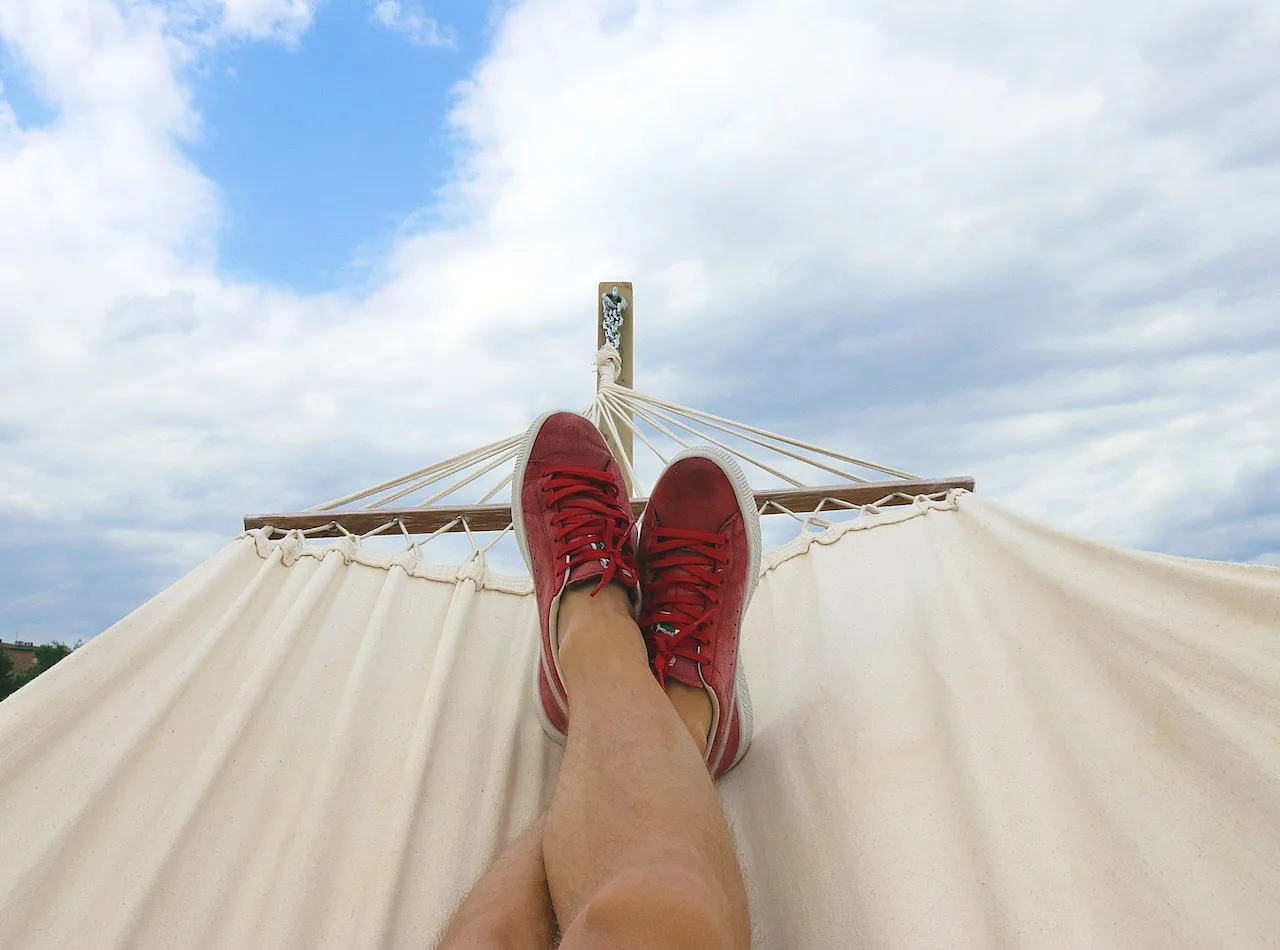Going on vacation is often portrayed as a leisure activity, happening once every year during the holiday season. While it may be a fun experience for individuals and families alike, research suggests that this luxury experience is more than leisure. In fact, holidaying is an important tool in aiding our health and well-being.
In this pursuit of success in a capitalist society, people are now working more hours, and taking less time off. Downtime is limited, with individuals even working many jobs, which brings on various mental and physical health challenges. This is where vacations come in. As a way of getting away from your everyday responsibilities and stress, studies have shown that vacations present some health and wellness benefits.
Health Benefits of Vacations
1. Reducing the Risk of Cardiovascular Disease
Bryce Hruska is an assistant professor of public health at Syracuse University’s Falk College of Sport and Human Dynamics. He says, “what we found is that people who vacationed more in the past 12 months have a lowered risk for metabolic syndrome and metabolic symptoms”.
Metabolic syndrome (MetS) is a term used to define the combined occurrence of risk factors that place an individual at high risk of developing cardiovascular disease. Chiadi E. Ndumele, M.D., M.H.S., a cardiologist at the Johns Hopkins Ciccarone Center for the Prevention of Heart Disease, “nearly one in three Americans have metabolic syndrome. Many people don’t recognize that they have the condition and underestimate the risks it presents.”
Metabolic syndrome comes with the following symptoms:
- High blood pressure: High blood pressure is dangerous because it can damage your arteries by making them less elastic. This decreases the flow of blood and oxygen to your heart, leading to heart disease.
- Low HDL (Good) Cholesterol: HDL handles the removal of cholesterol from your arteries. It then transports it to the liver for removal from the body. Studies show that low levels of HDL increase your risk of developing cardiovascular diseases.
- High Triglyceride Levels: Triglycerides are lipids responsible for giving your body energy. While your body makes triglycerides and also gets them from the foods you consume. High triglyceride levels can increase your risk of coronary heart disease and stroke. This also raises your risk of acute pancreatitis or inflammation of the pancreas that causes severe pain in the abdomen.
Heart disease is the leading cause of death for both men and women in the United States. A person dies every 34 seconds from cardiovascular disease. Hruska adds that “…we are actually seeing a reduction in the risk for cardiovascular disease the more vacationing a person does”, showing the importance of vacationing for your heart health.
2. Reducing Burnout
Job burnout is a type of work-related stress that involves a state of physical and emotional exhaustion. It is accompanied by a sense of reduced accomplishments and a loss of personal identity. While there are many causes of job burnout, the most common ones include:
- A lack of control at work
- Long working hours
- Unclear job expectations
- Work-Life Imbalance
- Lack of social support
- Dysfunctional workplace dynamics
The consequences of this condition include:
- Fatigue
- Insomnia
- Heart disease
- High blood pressure
- A lowered immune system
On a global scale, about 63% of employees experience burnout. A recent U.S. Travel Association study showed that 40% of employees neglect to use their vacation time. This is due to fear of the extra work they’ll have upon their return. Stress causes your work to suffer, and interferes with your productivity.
Ashley Whilans is an assistant professor of business administration at Harvard Business School. She, says “vacations are really important to recover from our always-on work culture,” which has been shown to lead to burnout. Yet, vacations help us come back to work “more refreshed, more creative, more energized, feeling more positive”.
3. Lowered Risk of Depression / Depression Related Symptoms
Affecting about 5% of the global population, depression can become debilitating if not treated. It can impact every aspect of our lives. According to Heidi McBain, a licensed marriage and family therapist, “travel can help with depression in that it gets people out of the rut of their everyday lives”.
Many studies have shown a link between vacationing and reduced symptoms of depression:
- A Canadian study of over 800 lawyers found that vacations had reduced depression
- A Japanese study found that short, three-day leisure trips reduced perceived levels of stress and reduced levels of cortisol.
- A long-term study found that workplace policies that allowed 10 days of paid vacation leave were linked to a 29% decrease in depression risk among women.

Neuroscientists have found that chronic exposure to stress, which is common in workplaces, can alter your brain structure, bringing on anxiety and depression. When you take a vacation, feelings of calm arise and ease stress, which allows the body and mind to heal.
How Long / Frequently Should You Do This?
There isn’t a set amount of time you should spend on vacation to reap the benefits. But some experts have weighed in on this, giving suggestions that we can incorporate based on our personal needs and responsibilities.
Ludmila Praslova, professor of psychology at the Vanguard University of Southern California, says, “There are people who can take a day trip and be very refreshed. There are people who can take a week or eight days and be very refreshed”, placing emphasis on how there is no one-size-fits-all method for this.
However, Jessica de Bloom, associate professor at the University of Groningen, who has researched the benefits of vacations, recommends “one or two longer vacations and several long weekends evenly distributed throughout the year.”
How To Do It
The premise of this form of self-care is escaping your daily routine to put you in a relaxed state that is free from any worries, stress, or responsibilities. This is done to disconnect and recharge, putting you in a better mental and physical state.
Vacationing is a form of leisure travel away from home. Whether you do this with your family, your partner, or even by yourself (be extra cautious, and have your whereabouts known by family and loved ones), it is a beneficial, and enjoyable experience. However, it can be a bit costly, so make sure you plan this ahead of time. If you can’t afford to jump on a flight and book a hotel/Airbnb in a different place, you can always opt for a staycation.
Staycations have established itself as an eco- and budget-friendly way of engaging in this. Encompassed by staying in the same town, you can book a weekend away at a hotel/Airbnb. Spend your time binge-watching your favorite series, blocking off social media, lighting a candle, reading a book, or even booking a spa appointment to give your staycation that extra zen. Remember, the purpose of this is to remove yourself from the world and your typical responsibilities, and recharge your mind, body, and soul.
Vacations Aren’t About Leisure Anymore
Your vacation doesn’t have to be lengthy, or cost-consuming for you to reap the benefits. In fact, a study of 40 German middle managers found that a four-day solo stay at a wellness hotel had a positive effect on stress and well-being, suggesting that short vacations are as effective as long ones.
What’s important is finding what works for you. With all the stress we face on a daily basis, a short getaway could be the perfect doctor’s prescription for a happier, healthier life. So use those public holidays and those paid leave days that are piling up, and take charge of your well-being.
MAIN IMAGE CREDIT: Photo by Mateusz Dach
References
- Randle, M.J., Zhang, Y. and Dolnicar, S., 2019. The changing importance of vacations: Proposing a theoretical explanation for the changing contribution of vacations to people’s quality of life.
- Packer, J., 2021. Taking a break: Exploring the restorative benefits of short breaks and vacations. Annals of Tourism Research Empirical Insights, 2(1), p.100006.
- Jalal, S.M., Chacko, S.K., David, M.S. and Khamseen, Z.M.B., 2021. Stress due to travel ban for pandemic during vacation among expatriates of Saudi Arabia. International Journal of Nursing Care, 9(1), pp.26-35.



![women [longevity live]](https://longevitylive.com/wp-content/uploads/2020/01/photo-of-women-walking-down-the-street-1116984-100x100.jpg)










